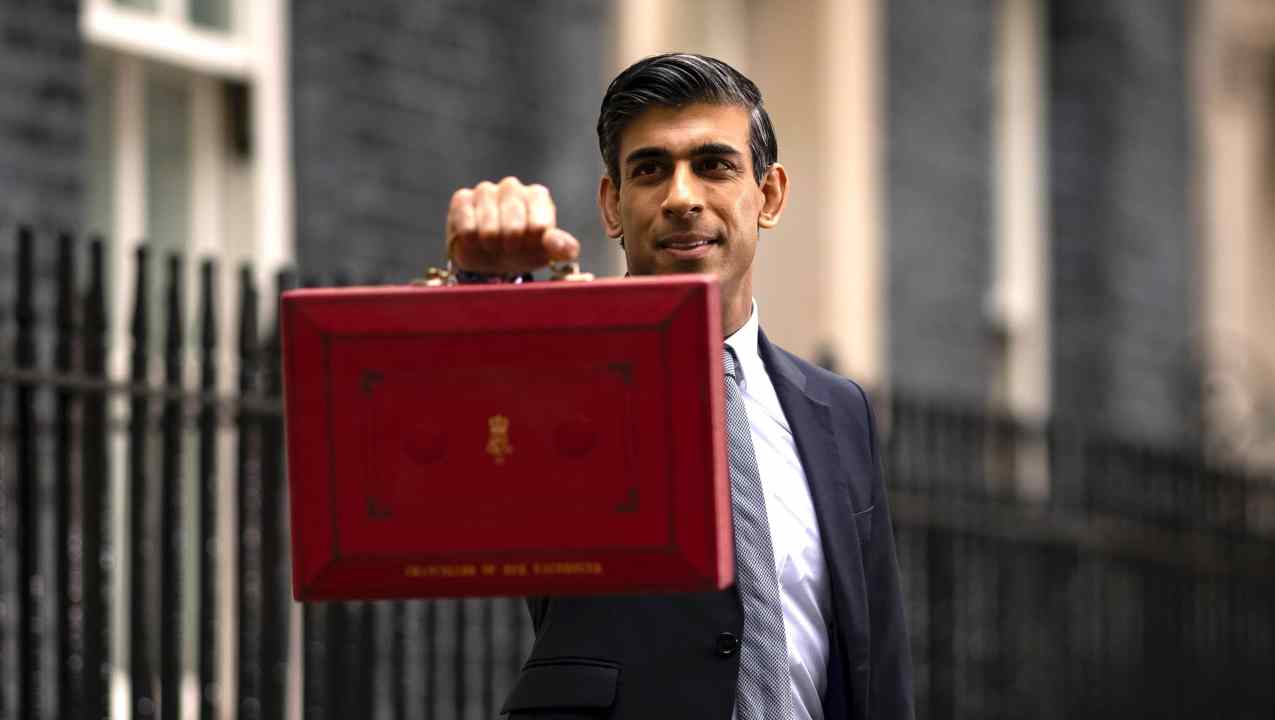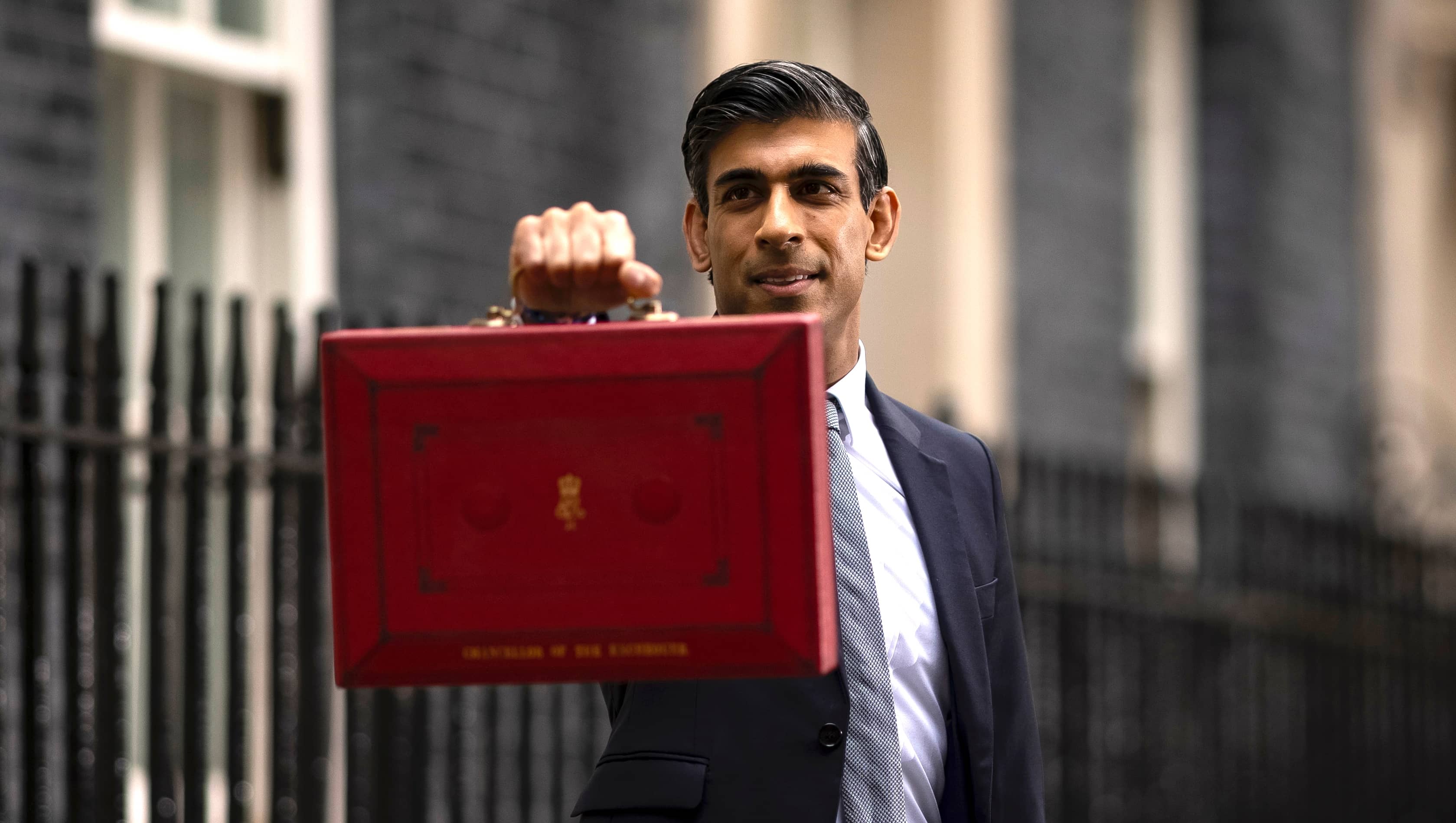Another big fiscal event for Rishi Sunak today, as he delivered his Budget and the details of a three-year spending review. For the first time, Covid-19 wasn’t in the spotlight. Instead it was framed as a big-spending event, confirming plans briefed before the Budget — £7 billion in capital spending for the NHS, end of the public sector pay freeze — and announcing a series of new plans, including the return of increased foreign aid spending at 0.7 per cent of GDP by 2024-25. But break down the numbers and there are even more surprises in store. Here are the six things we learnt from today’s Budget:
The tax take hits a record high
Tax as a percentage of GDP is heading towards a staggering 70-year high, up from 33.5 per cent pre-pandemic. While the percentage dips slightly in 2022, its trajectory for the medium-term is on the up, climbing to over 36.2 per cent by 2026-27.
The Conservative party is not on comfortable territory: the so-called ‘party of low taxes’ is now responsible for not just a tax raid, but a sustained one. This sits badly with Sunak especially, who considers himself to be on the free-market side of the Tory spectrum. But he doesn’t apologise for the trend.
‘I don’t like it,’ he said at the dispatch box, ‘but I cannot apologise for it — it’s the result of the unprecedented crisis we faced and the extraordinary action we took in response.’ The NI tax hike was a runner-up option for the Chancellor this summer: when it became clear the Prime Minister wanted a big spending plan to tackle social care, Sunak’s next move was to make sure it was fully funded. It’s a battle he won, and he continues to stand by it. But now he has a new goal: to reduce taxes.
By the end of this parliament, I want taxes to be going down, not up. I want this to be a society that rewards energy, ingenuity and inventiveness. A society that rewards work… [Do we choose a society where] every time prices rise, every time a company gets in trouble, every time some new challenge emerges, the answer is always: the taxpayer must pay? Or do we choose to recognise that government has limits. That government should have limits. If this seems a controversial statement to make… then I’m all the more glad for saying it… because that means it needed saying… and it is what we believe.
It’s a rousing call to conservative arms — but can he deliver?
Universal Credit taper falls
Sunak’s big attempt to garner tax-cutting credentials came at the end of the Budget. With a cost-of-living crisis looming over the UK, inflation expected by the Office for Budget Responsibility to hover at 4 per cent next year and the gas shortage set to send energy bills skyrocketing this winter, it seems the wrong time for the tax take to go up.
So the rabbit in Sunak’s hat was a direct appeal to those who will feel the tightest squeeze: the working poor. While their NI contribution is going up, the taper on Universal Credit is going down, dramatically.
It’s been a policy called for by organisations on the political left and right for a long time — that the taper is not only a tax on work but on the lowest paid and most financially vulnerable. The rate, currently at 63 per cent, will be cut by 8 per cent, estimated to make a family of four — one parent working full time and another parent working part-time — nearly £2,000 better off each year.
For the Labour benches, the rate reduction is unlikely to quell calls to U-turn on retracting the emergency £20-a-week Universal Credit uplift — but for full-time workers, the lower rate ensures they will now be taking home more than the emergency support provided.
The tax cut is worth £2 billion — something the Chancellor emphasised greatly. No doubt in part because of the beneficial impact this will have on those facing increasing costs this year, but also to offset the rather ugly tax news from the Budget.
We’re all going to the pub
Brexit featured far more heavily in today’s Budget than Covid-19. Mainly involving changes to the tax system that can now be made with Britain out of the European Union. This includes alcohol duty, which the Chancellor has reassessed and simplified, to make duty better correlate to alcohol content.
Draught Relief, which will apply to draught beer and cider, is a direct support line to British pubs, cutting duty by 5 per cent and applying to ‘drinks served from draught containers over 40 litres’, and estimated to cut the cost of a pint by 3p.
If your tastes lie elsewhere: the planned increase in duty on Scotch whisky, wine, cider and beer will be cancelled at midnight tonight — a tax cut worth roughly £3 billion — while sparkling wines will now pay the same duty as still wines, assuming the same alcohol strength, regardless of where they are produced.
New spending rules
As reported on Coffee House this week, the Chancellor was walking a fine line going into this Budget, needing to please his heaving-spending neighbour in No. 10 while also signalling a new era of (more) fiscal responsibility which he hopes to usher in. And the OBR has given the Chancellor reason to smile. Borrowing (while this year still the third-highest deficit in real terms since world war two) is estimated to be over £180 billion less than estimated in March.
The Chancellor wants this downward trend to continue and has announced new fiscal rules to better govern spending plans in future: a charter for budget responsibility. It’s made up of two key rules: ‘underlying public sector net debt, excluding the impact of the Bank of England, must, as a percentage of GDP, be falling’ and ‘everyday spending’, outside of an emergency, ‘must be paid for through taxation.’
What does this mean in practice? In short, arguments for more spending will have to be costed. Covid is not going to be seen as justification anymore for increasing day-to-day spending unless something goes badly wrong.
The Budget suggest Covid is yesterday’s problem
What could go wrong? Talk of ‘Plan B’ has been circulating Whitehall, which would include the return of restrictions that, by the government’s own estimates, could knock the economy by up to £18 billion. But listening to Sunak’s Budget today, he is planning for the virus (not its long-term consequences, but its emergency status) to be a thing of the past, with plans to be running a:
Budget [that] does not draw a line under Covid; we have challenging months ahead. And let me encourage everyone eligible to get their booster jabs right away. But today’s Budget does begin the work of preparing for a new economy post Covid.
That said, Sunak was masked-up in the House of Commons during PMQs, putting himself on the ‘cautious’ side of the cabinet mask divide. Not the most reassuring sign of things to come.
Election 2023, anyone?
Is an early election on the cards? It’s a question that’s grown slightly louder in recent months. As Katy Balls reported over the summer, it’s a prospect Tory MPs have been eyeing up. Might today’s growth figures bolster their enthusiasm?
The OBR has revised this year’s growth to 6.5 per cent, from 4 per cent. Next year the economy is forecast to keep flying high at 6 per cent and then return to far more lacklustre figures reflecting the 2010s. It’s notable, however, that the only two years the OBR upgraded its forecast are for 2021 and 2023. Some 2.1 per cent growth in 2023 is nothing as impressive compared to what it will be next year, but it’s better than 2023’s measly 1.3 per cent. If the Tories want to go to the polls with people feeling as well-off as possible, sooner could be the better bet.
Sign up for my weekly economics newsletter here.Listen to James Forsyth, Katy Balls and me give our verdict below:








Comments